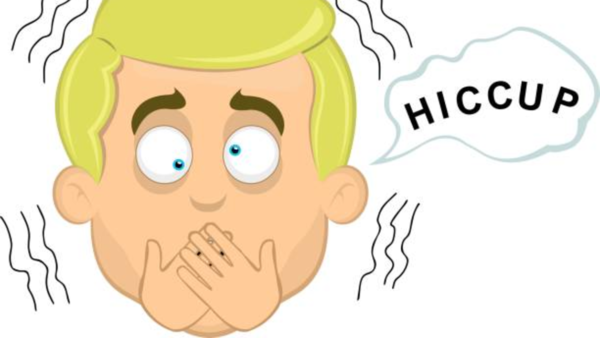Hiccups are a frequent, sometimes funny, and occasionally annoying involuntary reflex that nearly everyone has experienced at some time. Although usually temporary, hiccups can be a warning sign of a medical condition when they persist. But what’s behind hiccups, and how do they stop?
The science behind hiccups
A hiccup occurs when the diaphragm contracts involuntarily. This abrupt contraction is accompanied by sudden closure of the vocal cords, creating the typical “hic” sound. The entire process is governed by a reflex arc of the diaphragm, phrenic nerves, vagus nerve, and brainstem.
Hiccups are divided into three types:
- Transient hiccups: These are of short duration, lasting a few minutes, and are usually harmless.
Persistent hiccups : These last over 48 hours and may reveal an underlying problem.- Intractable hiccups: Lasting months or years, these are uncommon and usually associated with severe medical problems.

Common reasons for hiccups
Hiccups are usually caused by minor disruptions in the normal functioning of the body. Some of the common causes are:
- Eating too rapidly or overeating: If the stomach becomes too distended, it irritates the diaphragm, causing hiccups.
- Consumption of carbonated drinks or liquor: These can cause gas in the stomach, which might stimulate the diaphragm.
- Abrupt temperature changes: Eating extremely hot or cold food and beverages can interfere with nerve impulses that lead to hiccups.
- Emotional stimulation: Stress and anxiety can overstress the vagus nerve, causing hiccups.
- Intake of air: Eating gum or sucking on sweet candies can result in swallowing too much air, which causes hiccups.
Medical causes of hiccups
Although the majority of hiccups are benign, intractable or recurring hiccups may be a sign of a medical condition. Some of the possible causes are:
- Gastroesophageal reflux disease (GERD): Acid reflux can irritate the vagus nerve and diaphragm, causing hiccups.
- Nervous system disorders: Stroke, brain trauma, multiple sclerosis, or brainstem tumors can cause intractable hiccups.
- Metabolic disorders: Electrolyte disturbances, kidney failure, and diabetes have been associated with intractable hiccups.
- Medications: Some medications, such as steroids, anesthetics, and chemotherapy drugs, can cause hiccups as a side effect.

Stopping hiccups
While there is no surefire cure, some home remedies can stop hiccups:
- Breath control methods: Holding your breath, breathing into a paper bag, or taking slow, deep breaths can control the diaphragm.
- Drinking water: Drinking cold water or gargling can reset the vagus nerve.
- Swallowing honey or sugar: The grainy consistency can stimulate the throat and break the hiccup cycle.
- Pressure points: Slightly tugging on the tongue or pressing the diaphragm may relax the muscle.
- Posture change: Sitting in a knee-to-chest position may relieve spasms of the diaphragm.
When to seek medical attention
Hiccups that last more than 48 hours or are accompanied by symptoms such as difficulty breathing, chest pain, or weight loss may require medical evaluation. A doctor may recommend medications like chlorpromazine, baclofen, or metoclopramide to control severe hiccups. In rare cases, surgical interventions like phrenic nerve block may be necessary.
Hiccups are normally harmless, but if they last for a long duration, they can be a sign of a problem. Knowing their causes and treatments can effectively control them. Most hiccups do resolve by themselves, but persistent ones should not be dismissed. If you often have prolonged hiccups, medical consultation is necessary to eliminate any underlying health issue.
